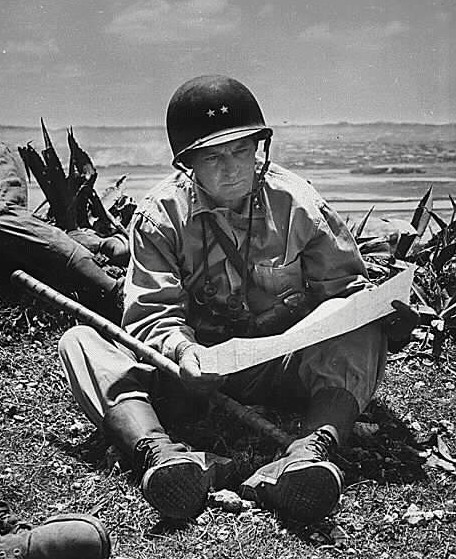Shepherd, Lemuel Cornick, Jr.
- Date of birth:
- February 10th, 1896 (Norfolk/Virginia, United States)
- Date of death:
- August 6th, 1990 (La Jolla/California, United States)
- Buried on:
- Arlington National Cemetery
Plot: 7. Grave: 8195-A. - Nationality:
- American
Biography
Do you have more information about this person? Inform us!
- Period:
- First World War (1914-1918)
- Rank:
- First Lieutenant (Lieutenant)
- Unit:
- 5th Regiment (Marines), 2d Division, American Expeditionary Forces (AEF), U.S. Army
- Awarded on:
- 1918
- Period:
- First World War (1914-1918)
- Rank:
- First Lieutenant (Lieutenant)
- Unit:
- 5th Regiment (Marines), 2d Division, American Expeditionary Forces (AEF), U.S. Army
- Period:
- First World War (1914-1918)
- Rank:
- First Lieutenant (Lieutenant)
- Unit:
- 5th Regiment (Marines), 2d Division, American Expeditionary Forces (AEF), U.S. Army
- Period:
- First World War (1914-1918)
- Rank:
- First Lieutenant (Lieutenant)
- Unit:
- 5th Regiment (Marines), 2d Division, American Expeditionary Forces (AEF), U.S. Army
- Period:
- First World War (1914-1918)
- Rank:
- First Lieutenant (Lieutenant)
- Unit:
- 5th Regiment (Marines), 2d Division, American Expeditionary Forces (AEF), U.S. Army
w/ Gilt Star
- Period:
- Second World War (1939-1945)
- Rank:
- Brigadier General (Brigadier)
- Unit:
- Commanding General, HQ, 1st Provisional Marine Brigade, U.S. Marine Corps
- Period:
- Second World War (1939-1945)
- Rank:
- Major General
- Unit:
- Commanding General, HQ, 6th Marine Division "The Striking Sixth", U.S. Marine Corps
- Awarded for:
- Operation Iceberg
"For exceptionally meritorious service to the Government of the United States in a duty of great responsibility as Commanding General of the SIXTH Marine Division during the assault and occupation of Okinawa Shima in the Ryukyu Chain, from 1 April 1945 to 21 June 1945. Schooled by grim experience in the art of countering Japanese strategies, Major General Shepherd organized a major Marine Corps fighting unit for the second time within a year, planned its commitment into battle with brilliant military acumen and landed his force on the west coast of Okinawa to seize vital Yontan Airfield in the initial operation. Cutting sharply across the width of the island, he advanced his units through Ishikawa Isthmus, wiping out vicious pockets of resistance and forcing the enemy into retreat as he completed the conquest of Ishikawa, captured the town of Nago and established a foothold at the base of mountainous Motobu Peninsula where Japanese forces were concentrated for a major defensive effort around the buttressed stronghold at Mt. Yaetake. Deploying his units for a systematic assault of the peninsula, he captured the enemy naval base at Unten Ko, then closed in to destroy the formidable mountain bastion. With northern Okinawa entirely secured by 23 April, the Sixth Marine Division was subsequently committed to the southern front where Major General Shepherd again demonstrated a superior ability to use the men and weapons at his command, hurling the strength of his iron-hearted regiments against the stubborn Naha-Shuri-Yonabaru line to effect a break-through. Rallying his heroic fighters for the Battle of Sugar Loaf Hill, he occupied it finally on 19 May and, leading the shore-to-shore landings which resulted in the seizure of Oroku Peninsula with its prized Naha Airfield, swept on into the east suburbs of Naha City to aid in its capture. A dynamic leader, he rendered decisive support in the attack against a series of ridges running southward as elements under his command stormed the Mezado Ridge on 17 June and raised the American Flag on Southernmost Kiyanu Ridge four days later to mark the close of an extremely bitter campaign. His indomitable courage and astute judgment were important factors in the success of his division's operations against this savagely defended outpost of the Japanese Empire and his superb generalship in the face of overwhelming odds reflects the highest credit upon Major General Shepherd, his gallant command and the United States Naval Service."
This award was obtained in the form of an Gold Star to be attached on the ribbon of the first award.
This award was obtained in the form of an Gold Star to be attached on the ribbon of the first award.
- Period:
- Korean War (1950-1953)
- Rank:
- General
- Unit:
- Commander-in-Chief, U.S. Marine Corps
This award was obtained in the form of a second Gold Star to be attached on the ribbon of the first award.
- Period:
- Second World War (1939-1945)
- Rank:
- Brigadier General (Brigadier)
- Unit:
- Commanding General, HQ, 1st Marine Division "The Old Breed", U.S. Marine Corps
- Period:
- Second World War (1939-1945)
- Rank:
- Major General
This award was obtained in the form of an Gold Star to be attached on the ribbon of the first award.
- Period:
- Korean War (1950-1953)
- Rank:
- Lieutenant General
- Awarded on:
- October 27th, 1950
Headquarters, Far East Command, General Orders No. 50
- Period:
- Second World War (1939-1945)
- Period:
- Second World War (1939-1945)
- Period:
- First World War (1914-1918)
- Period:
- Second World War (1939-1945)
- Period:
- Second World War (1939-1945)
- Period:
- Second World War (1939-1945)
- Period:
- Second World War (1939-1945)
- Period:
- Second World War (1939-1945)
- Period:
- Second World War (1939-1945)
- Period:
- Second World War (1939-1945)
- Period:
- Second World War (1939-1945)
- Period:
- Korean War (1950-1953)
- Period:
- Second World War (1939-1945)
- Period:
- Second World War (1939-1945)
- Period:
- Korean War (1950-1953)






























